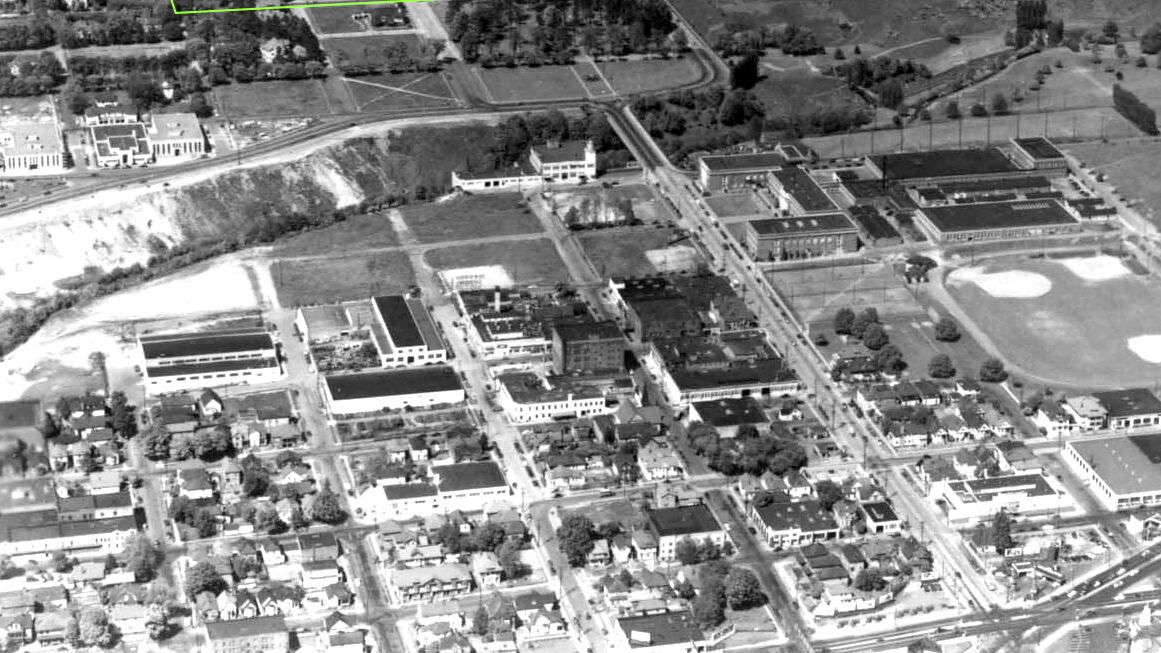With all the talk about what to do with Lloyd Center’s 23 acres, no one has mentioned what used to be there. Houses for low-income people surrounding a Peanuts-style frozen pond where kids used to skate, I assume? —Jason W.
I would love to tell you that the greed-crazed capitalists behind Lloyd Center cruelly demolished some precious, irreplaceable thing to make room for it—the last known habitat of the ivory-billed woodpecker, maybe, or the original Satyricon. The truth is more prosaic: It was mostly a bunch of vacant lots.
An aerial view of the area from 1947 shows just half a dozen buildings, only one of them large, scattered over the entire 18-square-block site. How could such a desirable parcel remain undeveloped for so long? Mainly because of a California oil tycoon turned Portland real estate speculator named Ralph B. Lloyd.
Lloyd had been dreaming of an eastside commercial hub since 1905. He began acquiring land in the area as a young man, before he’d even made his millions—though getting rich certainly sped up the process. Finally, in 1953, after almost a half-century of biding his time and slowly and carefully amassing property, Lloyd executed his masterstroke: He died.
Fortunately for you, me and Tonya Harding, his kids picked up the torch, and Lloyd Center opened in 1960. Unfortunately for my anti-capitalist narrative, though, nothing very big had to be knocked down except, you know, that one large building I mentioned earlier.
What was that building? Jesus, I thought you’d never ask. It seems to have been an apartment block owned by J.E. Bennett, one of only two Portland city commissioners ever to be recalled by voters. The recall petition described him as “discourteous, abusive, uncouth, [and] insulting…toward respectable citizens.”
Insulting how? Well, Bennett was a crusading teetotaler who wanted to prohibit pinball, bowling and pool in taverns. (He also wanted to prohibit taverns.) He advocated making Oregon a dry state, and at one point tried to have the Oregon Liquor Control Commission indicted by a grand jury for granting liquor licenses in Portland without consulting the city.
So yeah, that guy’s building got torn down. He was probably well paid for it, but I like to imagine he dropped all the money into a cement mixer when a bulldozer ran over his foot. A man can dream.
Questions? Send them to dr.know@wweek.com.

